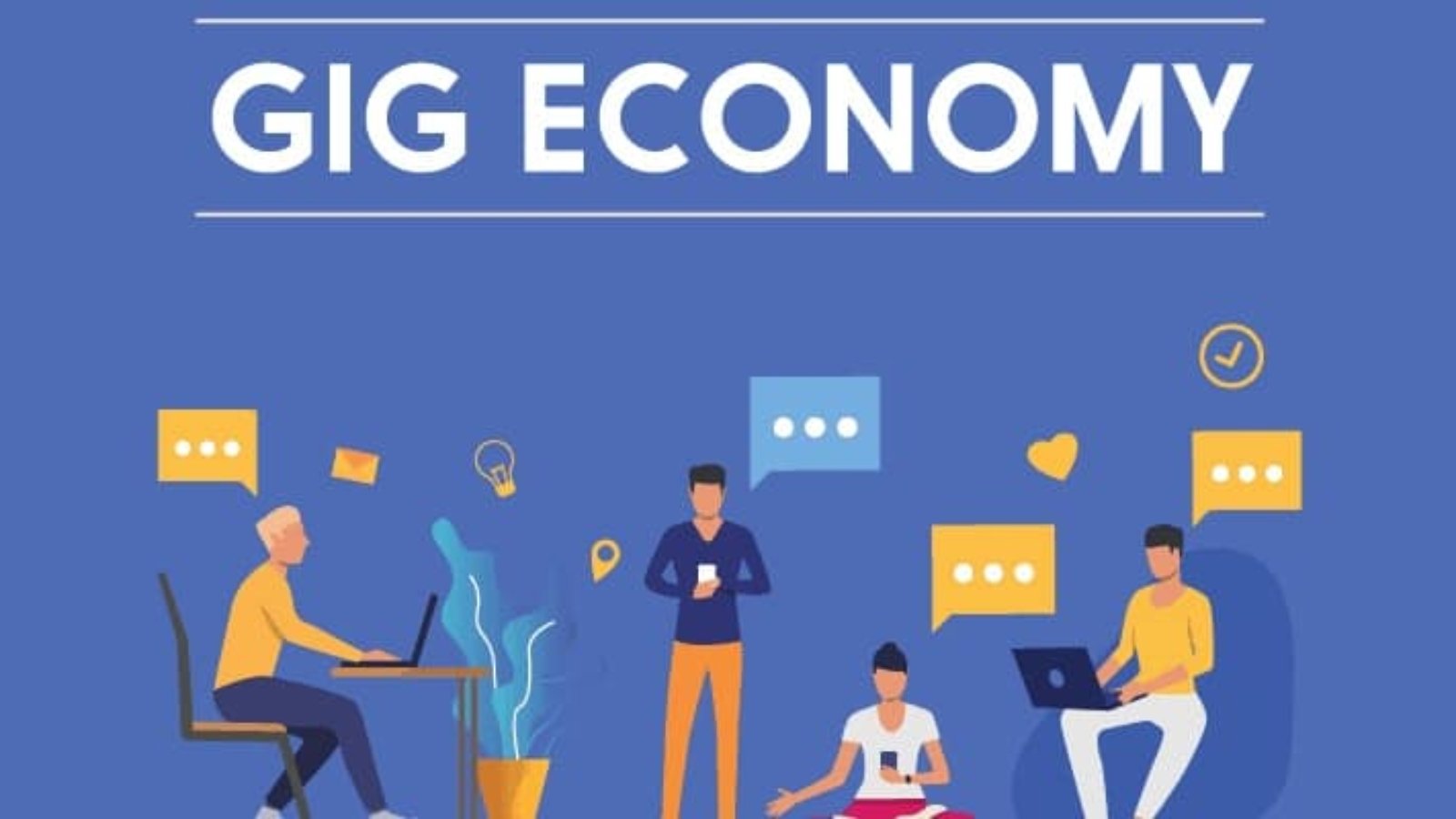The Gig Economy
The economy plays a crucial role in shaping the overall well-being and development of a society. It encompasses the systems and processes through which goods and services are produced, distributed, and consumed, impacting every facet of daily life. A robust economy drives job creation, increases income levels, and improves living standards, enabling individuals to access essential resources and opportunities. It fosters innovation and investment, which can lead to advancements in technology and infrastructure, further enhancing quality of life. Economic stability also supports social programs and public services, such as education, healthcare, and transportation, contributing to a more equitable and prosperous society. Moreover, a strong economy can enhance a nation’s global competitiveness and influence, affecting international trade and relations. In summary, the economy is foundational to societal progress, influencing individual prosperity, public welfare, and overall national development.

What is the Gig Economy ?
The gig economy refers to a labor market characterized by short-term, flexible, and freelance work arrangements rather than traditional full-time, permanent jobs. In this economy, individuals take on temporary, contract-based tasks or projects, often facilitated through digital platforms and apps. These gigs can range from freelance writing and graphic design to ride-sharing and delivery services. The rise of technology has enabled this shift by providing platforms like Uber, Upwork, and TaskRabbit that connect workers with clients or customers in need of specific services.
One of the key benefits of the gig economy is the flexibility it offers both workers and employers. For workers, it provides the freedom to choose when and where they work, which can lead to a better work-life balance and the ability to pursue multiple income streams.
However, the gig economy also presents several challenges. Workers often face income instability and a lack of benefits such as health insurance, retirement plans, and paid leave, which are typically provided in traditional employment settings. Additionally, gig workers may encounter job insecurity and unpredictable earnings, as their income can be highly variable and dependent on market conditions or platform algorithms. The legal and regulatory framework around gig work is also evolving, with ongoing debates about worker rights, minimum wage laws, and the classification of gig workers as independent contractors versus employees.
Why should the Gig Economy be required ?
its ability to adapt to modern work preferences and economic conditions. It offers significant flexibility for both workers and employers, allowing individuals to choose when, where, and how much they work, which can lead to a better work-life balance and the opportunity to pursue multiple income sources. For employers, the gig economy provides a scalable workforce that can quickly respond to fluctuating demands, reducing overhead costs associated with full-time employees and enabling businesses to remain agile and competitive. Additionally, the gig economy fosters innovation and entrepreneurship, giving individuals the chance to monetize their skills and services in new and diverse ways. As the traditional job market evolves and technological advancements continue to reshape industries, the gig economy meets the growing need for a more dynamic and adaptable labor market, offering solutions to the challenges of job flexibility, workforce management, and economic efficiency.
What are the terms and conditions of the Gig Economy ?
The terms and conditions of the gig economy often revolve around the nature of flexible, freelance, and contract-based work arrangements facilitated through digital platforms. Generally, these terms include agreements on the scope of work, payment structures, and duration of contracts. Workers typically agree to complete specific tasks or projects within a set timeframe, and compensation is usually based on the completion of these tasks or on an hourly or per-project rate. Unlike traditional employment, gig workers are often classified as independent contractors, which means they are responsible for their own taxes, insurance, and benefits, and do not receive employee benefits such as health insurance, retirement plans, or paid leave. Platforms that facilitate gig work usually outline their own terms, including fees or commissions they charge for connecting workers with clients, as well as policies on dispute resolution and user conduct. These terms aim to clarify the expectations and responsibilities of both workers and employers, although the lack of standardized regulations across the gig economy can lead to variability in conditions and protections.
How is the Gig Economy based on ?
The gig economy is fundamentally centered around the concept of short-term, flexible work arrangements, which are largely facilitated by digital platforms that connect individuals seeking temporary or freelance work with those requiring specific services. This model diverges from traditional employment by allowing workers to engage in contract-based, freelance roles rather than committing to permanent, full-time positions. Key to the gig economy’s operation is technology, which underpins its marketplace. Digital platforms such as Uber, Upwork, and TaskRabbit provide the infrastructure needed for these transactions. These platforms act as intermediaries, offering tools for job matching, secure payment processing, and communication channels between workers and clients. For instance, Uber connects drivers with passengers, while Upwork links freelancers with businesses needing various services like writing or programming. These platforms streamline the process of finding and managing work, which can be beneficial for both parties involved.
Why is risk management an essential part of the Gig Economy ?
Risk management is crucial in the gig economy because it addresses the unique uncertainties and challenges associated with freelance and contract-based work, which often diverge significantly from traditional employment structures. Unlike conventional jobs, gig work frequently lacks the stability of a fixed salary, comprehensive benefits, and long-term job security. This instability necessitates proactive measures from both gig workers and employers to effectively manage and mitigate risks.
For gig workers, risk management involves several key strategies. First, they must navigate income volatility, as gig earnings can fluctuate widely depending on the availability of work, seasonal trends, and market demand. To manage this, gig workers need to engage in careful financial planning, including setting aside savings to cover periods of low income and budgeting for variable expenses. Additionally, gig workers often lack traditional employment benefits like health insurance, retirement plans, and paid leave, so they must secure their own insurance coverage and plan for future financial needs. Personal safety is another critical concern, particularly for those in roles that involve direct interaction with clients or physical labor. Gig workers should take steps to ensure their own safety and understand their rights in case of disputes or accidents
Employers in the gig economy also face distinct risks. They need to manage the quality and reliability of freelance labor, as gig workers may not always meet the consistent standards of full-time employees. This requires clear communication and well-defined expectations in contracts to ensure that the work delivered aligns with the company’s standards.

Add a Comment